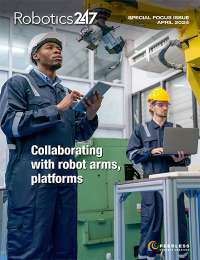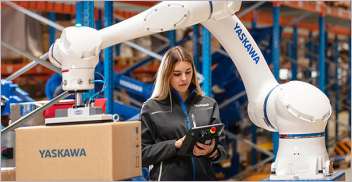Late last month, Virtual Incision announced that its De Novo request for its MIRA surgical system for use in bowel resection procedures is under substantive review by the U.S. Food and Drug Administration, or FDA. MIRA stands for “miniaturized in vivo robotic assistant.”
The company said in a press release that if its request is granted, MIRA “will be the first robotic-assisted surgery device to obtain marketing authorization through the De Novo pathway for use in bowel-resection procedures.” The company added the authorization would provide it the foundation it needs to gain approval for other procedures in the future.
The De Novo classification request process provides companies “a marketing pathway” to submit new medical devices through the FDA process. Through the process, the vendor must demonstrate the device provides “reasonable assurance of safety and effectiveness for the intended use,” according to the FDA's website.
Virtual Incision CEO and President John Murphy told Robotics 24/7 that if the company clears the De Novo process, it will be able to go through a much shorter review process through the 510k approval pathway for future indications for MIRA.
“In that way, we are really laying the groundwork for the MIRA platform to be used more broadly,” he said.
Virtual Incision offers smaller robotic surgical system
Virtual Incision was founded in 2007 and is headquartered in Lincoln, Neb. MIRA, which weighs approximately 2 lb., features instrument arms and an integrated camera to allow surgeons to conduct abdominal surgical procedures. Accompanying the system is a companion cart, which is used to transport and stage the system, and a console, which allows the surgeon to control the instrument's arms and camera.
The company pitches MIRA as a smaller and sleeker alternative to bigger robotic-assisted surgical systems. Murphy noted, for example, that all the actuation is within the device's arms.
“It is fully self-contained, whereas as other approaches are either mainframe multiport robot, or mainframe pedestal robot, or mainframe cable robot,” he said. “Where we're different is that we're a little robot on the outside. We've got 200 patents and patent applications to this foundational approach to minibots.”
The device has been used in an investigational device exemption clinical study to complete colectomy procedures, Murphy said. The company worked at three sites in the United States as part of the study. They include Lincoln, Philadelphia, and Charleston, S.C.
“These are difficult cases,” he said, noting that patients being operated on had conditions such as colon cancer, diverticulitis, and Crohn's disease.
“The colon is very larger, five or six feet, and you're usually taking out up to a foot of a colon and then resealing the colon, he added. “It's a very tough procedure.”
Findings to be shared with ASCRS
The company will be presenting the findings from the trial tomorrow at the 2023 American Society of Colon and Rectal Surgeons (ASCRS) Annual Scientific Meeting in Seattle.
Virtual Incision is also working with NASA, and one of its MIRA systems will be tested aboard the International Space Station in 2024 as part of a technology demonstration mission.
With MIRA, Virtual Incision aims to make every operating room robot-ready, Murphy said. The robotic-assisted surgery device, in most cases, can be set up in an operating room in under 30 minutes, he said.
The company has raised $116 million in funding, according to Crunchbase.
About the Author
Follow Robotics 24/7 on Linkedin
Article topics
Email Sign Up
















